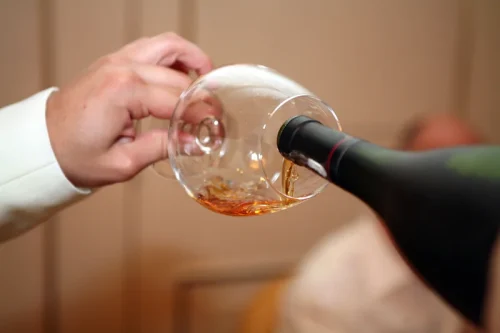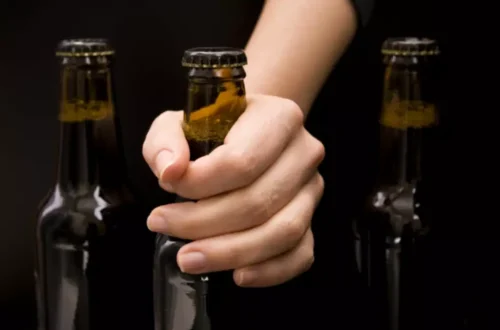
Rough sleeping in extremely low temperatures over winter, combined with prevalent alcohol addiction problems, make the homeless population particularly vulnerable to hypothermia. Daily drinking can have serious consequences for a person’s health, both in the short- and long-term. Many of the effects of drinking every day can be reversed through early intervention.

Why Does Alcohol Cause Hot Sweats?
Another option would be to have alcoholic drinks with lower alcohol content, which means your liver has less work to do since you’ll have less alcohol in your system. That way you can still enjoy some drinks, but also give your liver a bit of a rest. People experiencing mild night sweats from occasional alcohol consumption may find relief using home remedies. Those who believe they have AUD or alcohol intolerance may wish to speak with their doctor. Night sweating may also indicate certain types of cancers, which a person can discuss with their oncologist. While intoxication involves manageable symptoms of alcohol use, alcohol poisoning is a medical emergency that requires immediate attention.
Risk factors
- One third of people said that drinking spirits made them feel angry, or susceptible to aggressive urges.
- The best alcohol to drink during menopause can vary for each person, but lower-alcohol or non-alcoholic options might be preferred to avoid worsening hot flashes.
- Most of the alcohol you consume is broken down into byproducts through metabolism within your body.
Respondents were most likely to report feeling relaxed (52.8 percent) when drinking red wine; although almost half of respondents also reported feeling relaxed when drinking beer. Hence, drinking alcohol makes it harder for your immune system to gear up and mount a defense response against invading pathogens and viruses. As a result, you may find yourself having frequent sore throat pains, catching colds and infections more often. But long-term and excessive alcohol consumption can lead to liver inflammation (liver hepatitis). Meanwhile, binge drinking focuses more on how quickly and how much you drink in one sitting.
Severe symptoms

When you drink alcohol, it’s absorbed into your bloodstream through your stomach and small intestine. From there, it travels to your liver, where it is metabolized into acetaldehyde and then into acetate. We publish material that is researched, cited, edited and reviewed by licensed medical professionals.
In summary, your body may actually produce some extra heat while you are drinking, but most of this finds its way to the surface of your skin or your extremities. This is why you may feel hot, and even sweat profusely when you drink alcohol. One study of alcohol’s effects on body temperature showed that sweating and the sensation of heat increased significantly 10 minutes after consuming alcohol.
Does Drinking Alcohol Increase Body Temperature?
This is because beer and wine have a lower alcohol content and take longer to drink, allowing the body more time to adjust to the increased heat production. For example, alcohol can increase the production of the stress hormone cortisol, which can disrupt our sleep and lead to night sweats. It can also decrease the production of the hormone vasopressin, which regulates our body’s fluid balance, leading to dehydration can alcohol make you feel hot and increased thirst. The natural tendencies of your body — to detect cold, for example — are there to protect you from frostbite or hypothermia. Usually, your blood vessels constrict in lower temperatures in order to direct blood to your vital organs, Simon said. What’s more, because your body thinks it’s hot, you can begin to sweat — a response that is also designed to lower body temperature.

When should you cut down on drinking?
Sports drinks and bouillon are good choices to help your body replace the water, salt and potassium you lost when you were drunk. There you have it – we’ve answered the question – why does alcohol make you hot? Some people suffer from Asian flush reaction – and are incapable of properly metabolizing alcohol. While this can be annoying and uncomfortable, it is typically not cause for concern. There are a few reasons why you might get sweaty when drinking alcohol, and many of these reasons are interdependent.
When to see a doctor
- On top of this, the health condition behind the medication may increase someone’s health risks during a heat wave.
- It was somewhere around my third year of college when I began to develop a taste for wine as opposed to, say, marshmallow-flavored vodka.
- Fatigue, jaundice, abdominal pain, and elevated liver enzymes are common early signs.
Some drinks are known to produce a burning sensation in the throat and stomach. Some liquors and spirits are even consumed during the winter and in cold places to warm people up. However, the heat produced by alcohol can become highly uncomfortable if drinking gets out of hand, and if you’ve ever wondered, “why do I feel hot after drinking alcohol,” you should keep reading. It’s also worth noting that, apart from alcohol withdrawal, hot flashes may occur as a result of alcohol intolerance — which is when our body has an adverse reaction to alcohol. While facial flushing, nausea, headaches, a stuffy nose, and itchiness are the most common symptoms, low blood pressure, high heart rate, diarrhea, hot flashes, and shortness of breath are typical as well. However, hot flashes and drinking alcohol are linked because of hangovers.
